11 Parenting Habits That Make Other People Secretly Judge You
Even if you have your child's best interests at heart, there are certain habits other people can't help but judge.
 Perfect Wave | Shutterstock
Perfect Wave | Shutterstock While everyone has their own beliefs and values around parenting, there are some universal truths about raising children that everyone can adopt to set their kids up for success. Being a “perfect parent” is impossible, but prioritizing things like healthy habits, consistent effort, open conversations, building trust, and teaching manners can get you close.
Then there are those parenting habits that make other people secretly judge you, not just because they’re misguided, but because they are painfully toxic. These things might seem harmless and innocent without giving them much thought, but they affect kids more than you may realize.
Here are 11 parenting habits that make other people secretly judge you
1. Distracting your kids with screens
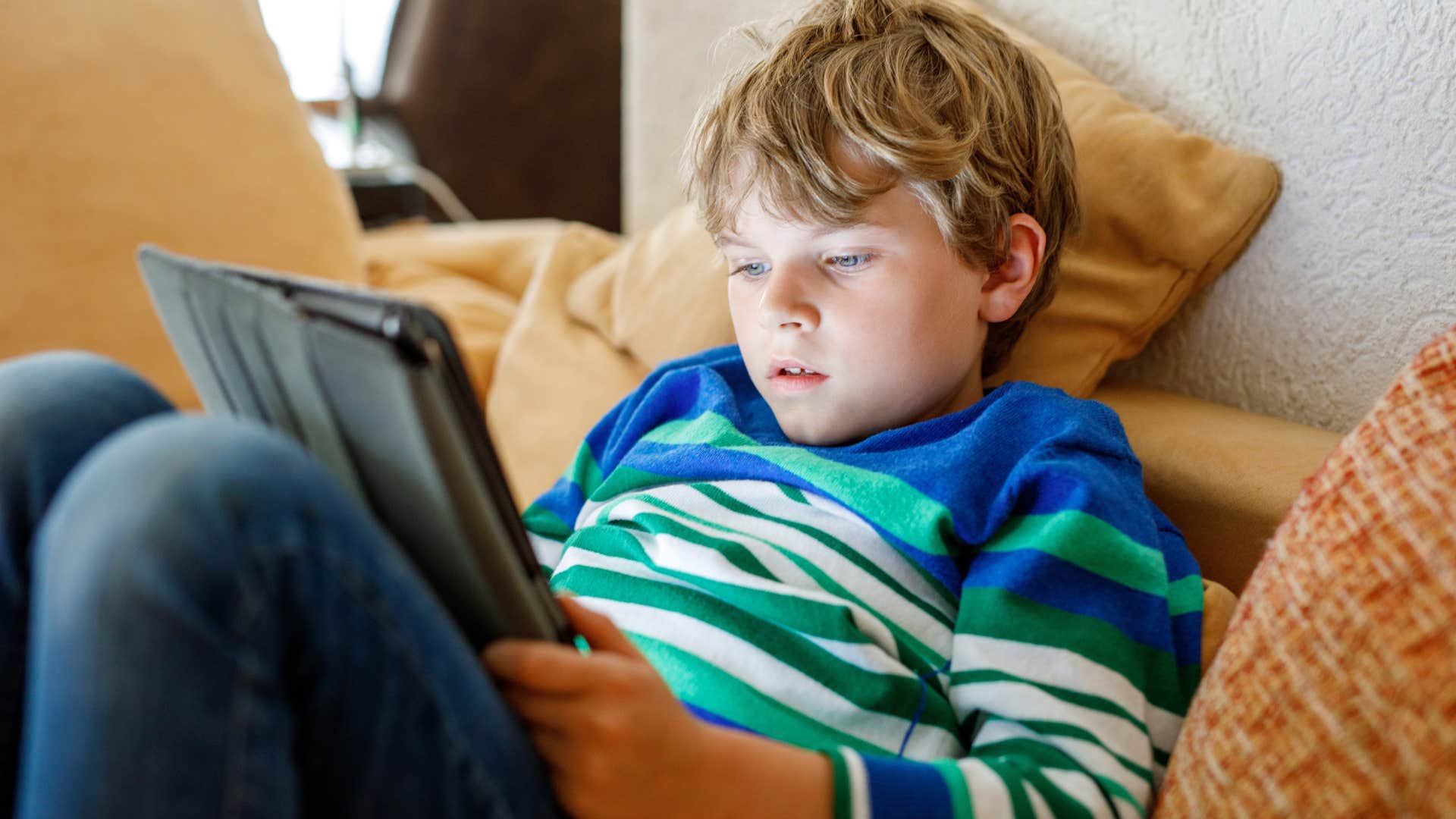 Irina WS | Shutterstock.com
Irina WS | Shutterstock.com
Distracting your toddler with an iPad at dinner or giving them unrestricted access to social media and the Internet from a young age is one of the parenting habits that other people secretly judge. Too much screen time for kids early in life affects their physical and mental development, and can harm them emotionally, sparking lower self-esteem, decreased happiness, and weakened emotional regulation skills, according to a study from the Children’s Hospital of Orange County.
It’s unhealthy for their development and detrimental to their future social skills, emotional intelligence, self-worth, and relationships, even if it seems innocent and easier for you in the moment.
2. Publicly shaming your kids
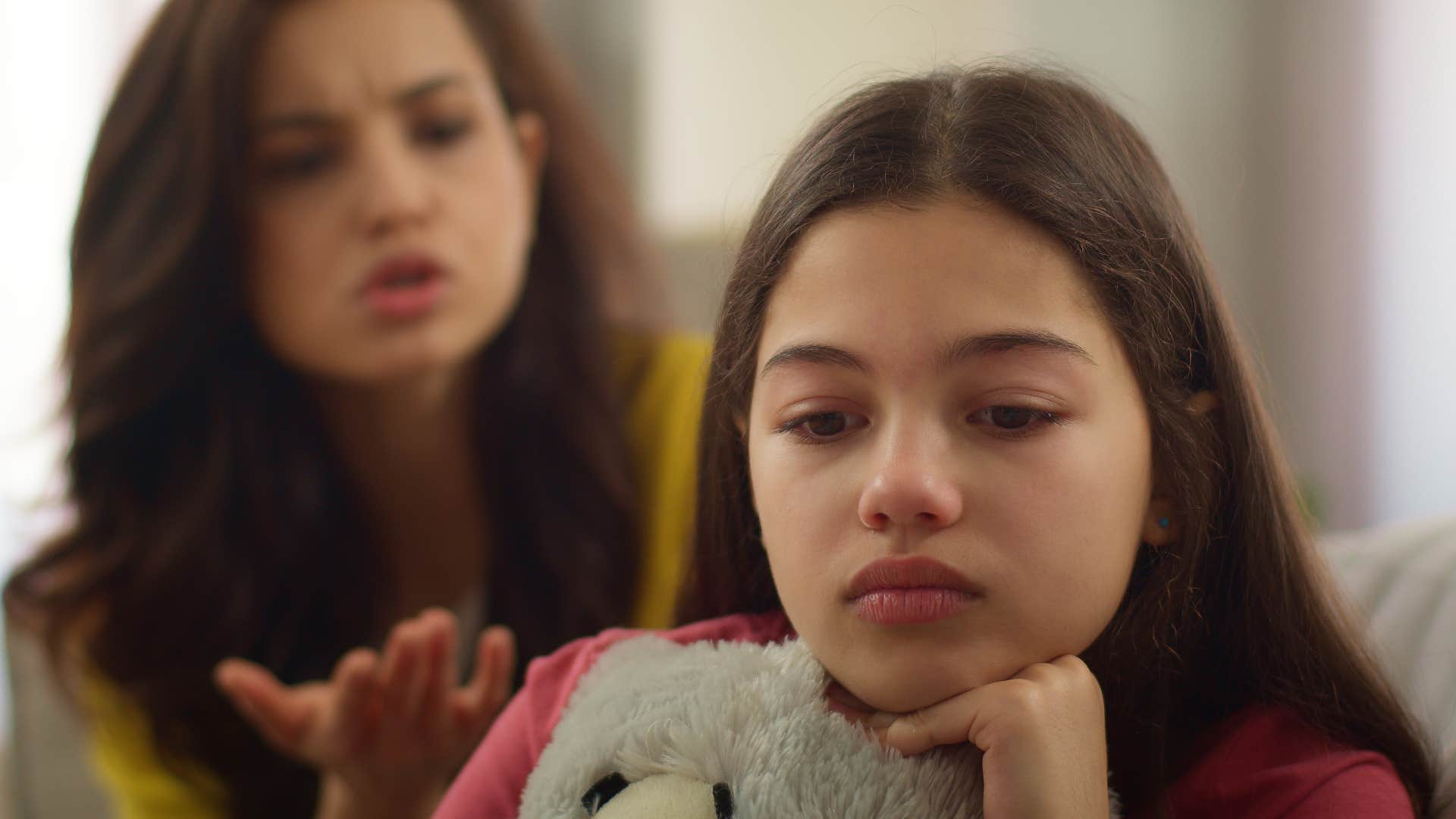 MAYA LAB | Shutterstock.com
MAYA LAB | Shutterstock.com
According to experts from Harvard Health, publicly shaming and criticizing children can have detrimental effects on their well-being and self-esteem. It’s also incredibly uncomfortable for other people to navigate and watch in public. It puts your child at a disadvantage, especially if you’re shaming them for something they can’t change or have no control over.
If there’s a habit or behavior you want them to change, have a private conversation and lead with empathy. You can spark more motivation and change in a child who feels supported and loved by a trusted adult, rather than being anxious that they’ll be called out in public.
3. Posting their entire lives online
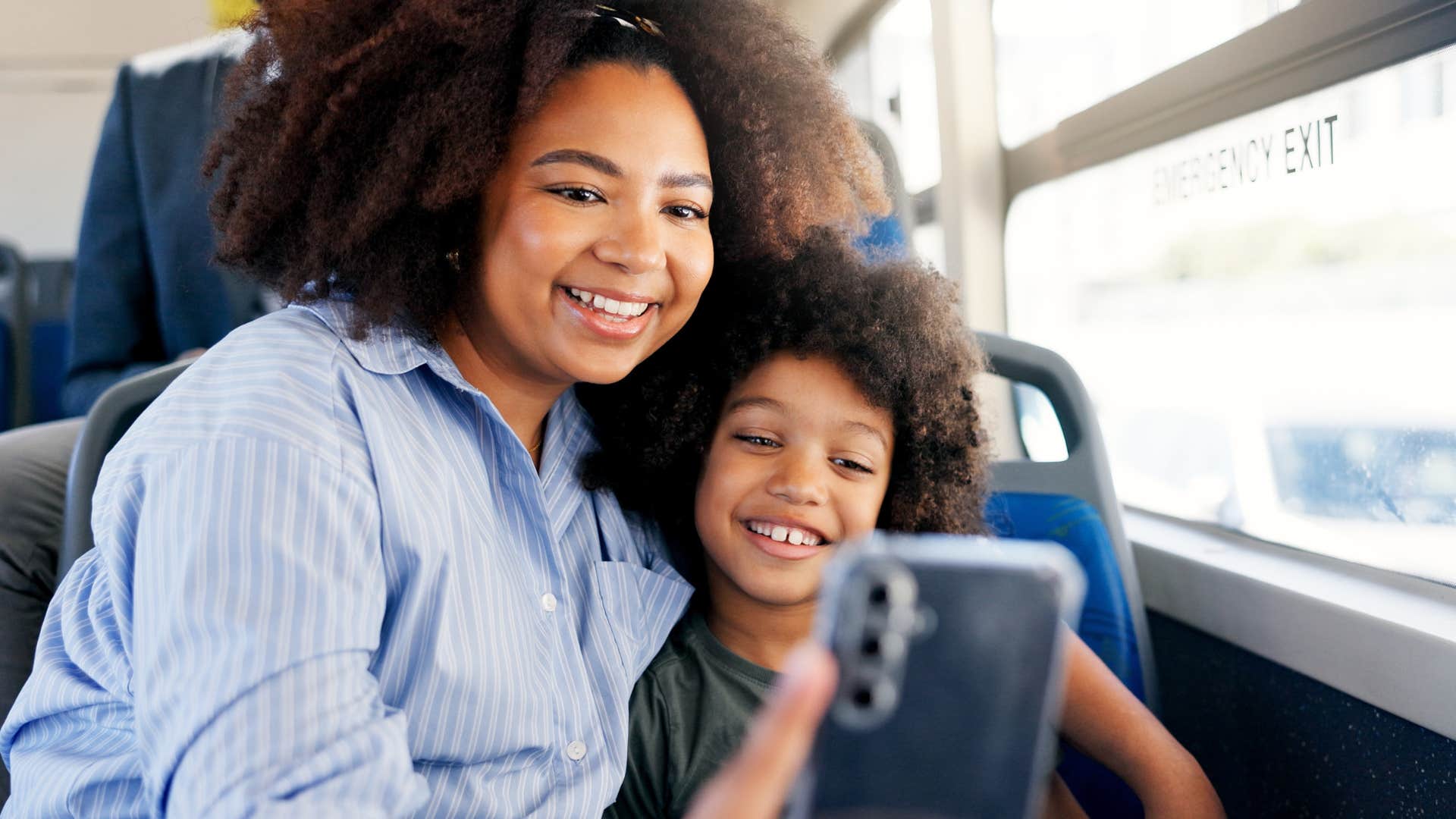 PeopleImages.com - Yuri A | Shutterstock.com
PeopleImages.com - Yuri A | Shutterstock.com
One of the parenting habits that make other people secretly judge you from afar, or at least, from behind their screens while watching your content, is posting your child's entire life online.
Parents who overshare their lives online put their kids' privacy and safety at risk by seeking external validation in ways that diminish self-esteem and confidence. Considering children often develop self-esteem and feelings of self-worth from their parents, watching their parents seek attention online and use the child's accomplishments for validation can be disorienting and toxic.
4. Making excuses for their child's bad behavior
 DimaBerlin | Shutterstock.com
DimaBerlin | Shutterstock.com
Phrases like “boys will be boys” and “they didn’t mean it” to excuse children’s misbehavior are some of the most common parenting habits to make other people secretly judge you. It teaches kids to avoid taking accountability for their actions and prompts them to develop a sense of entitlement. This can sabotage their relationships later in life.
While it often feels temporarily comfortable to avoid shame, guilt, and embarrassment by making excuses and playing the victim, psychologist Mary C. Lamia suggests that these behaviors only fuel toxic coping mechanisms and deep-rooted emotional turmoil that’s much harder to unlearn.
5. Constantly bragging about their achievements
 Pics Five | Shutterstock.com
Pics Five | Shutterstock.com
Many people secretly judge parents who constantly brag about their kids. However, that's because this type of behavior often comes not from a place of genuine pride and compassion, but as a vehicle for gaining personal external validation and praise.
By bragging about and comparing their kids to others, parents craft an image of the family to suit their best interests, rather than celebrate their children’s accomplishments at home. They’re more concerned with boasting on social media or bragging by bumper sticker than genuinely making their child feel proud and important.
6. Talking down to them
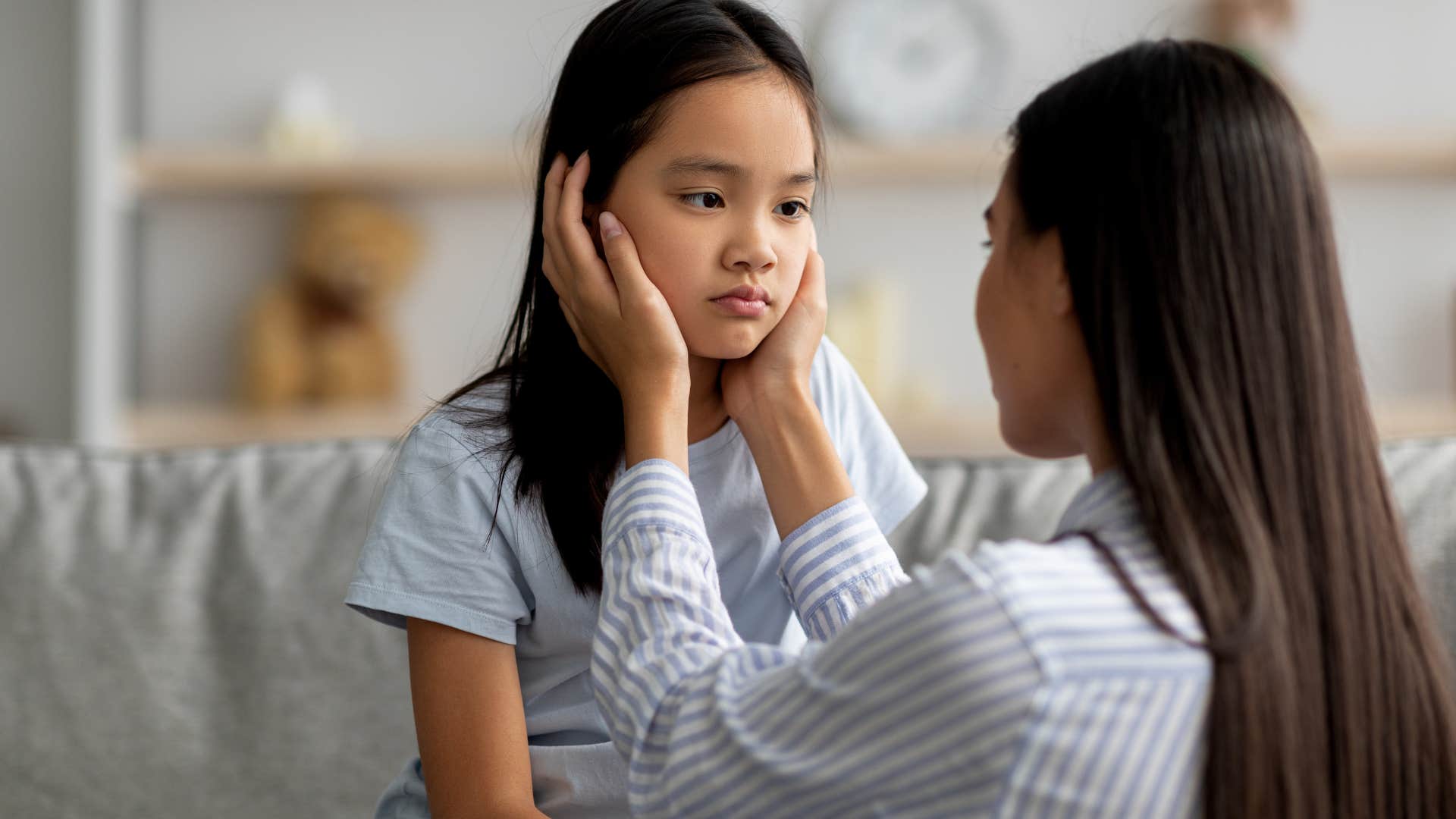 Prostock-studio | Shutterstock.com
Prostock-studio | Shutterstock.com
Kids are people, too, so why do so many parents and families fail to give kids the same respect, appreciation, empathy, and grace they give their peers? Talking down to kids in public or holding them to unrealistic standards is one of the parenting habits other people secretly judge.
It’s more common than many people understand. From transactional parents who withhold affection and punish their kids when they don't get their way to avoiding open communication about vulnerabilities and emotions, parents who don’t create a safe space for their kids sabotage their health and well-being.
7. Bringing sick kids to daycare
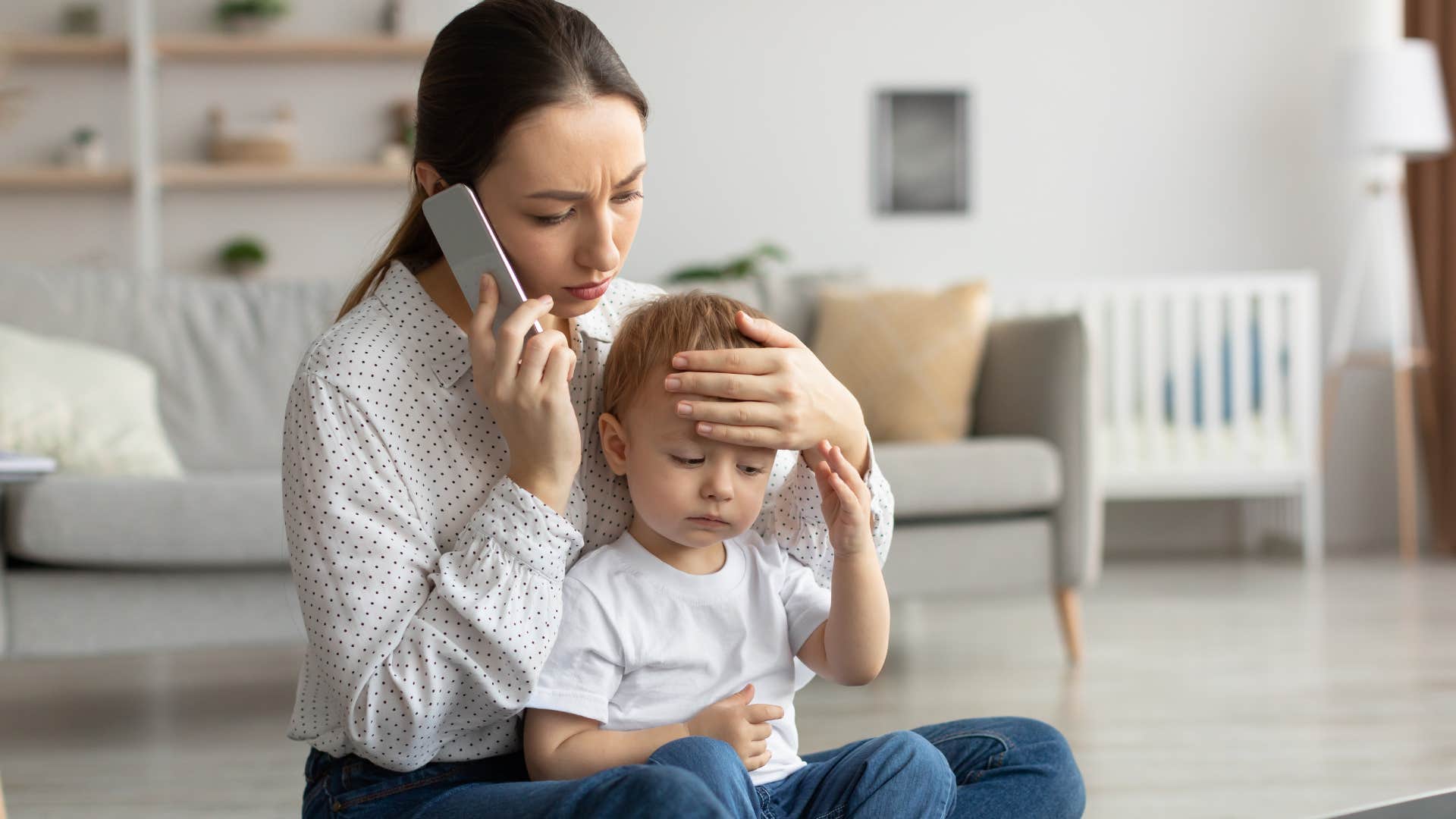 Prostock-studio | Shutterstock.com
Prostock-studio | Shutterstock.com
Other than when families genuinely can’t afford to stay home with their kids or don’t have other options available, willingly sending sick kids to daycare is one of the parenting habits that make other people secretly judge you.
While there may be resources available in certain daycares to support your sick child, chances are you’re putting their teachers, peers, and families at risk for getting sick, as well.
8. Never saying no
 Prostock-studio | Shutterstock.com
Prostock-studio | Shutterstock.com
Never saying no to your kids and not setting boundaries is the perfect way for kids to develop a sense of entitlement that sabotages their self-esteem and relationships. When kids feel entitled to other people’s time and energy without restriction, they’re bound to struggle with frustration, anxiety, and isolation later in life.
Teaching kids to set healthy boundaries for themselves and with others starts with being a great role model. What behaviors are you not willing to tolerate from your kids? How are you going to respond to misbehavior? What do conversations expressing concerns and resolving conflict look like?
9. Not teaching basic manners
 Fizkes | Shutterstock.com
Fizkes | Shutterstock.com
Teaching kids good manners doesn’t need to be about dress codes or rigid table etiquette. It can simply be about habits and practices to ensure they treat other people kindly and with respect. From expressing gratitude with “please” and “thank you” to holding the door open for people, basic manners help kids make better connections and relationships with other people into adulthood.
Refusing to teach kids manners or being a poor role model of respect for others is one of the parenting habits other people secretly judge, even if it’s subtle.
10. Giving unsolicited advice
 Fizkes | Shutterstock.com
Fizkes | Shutterstock.com
Psychologist Seth Meyers argues that people who give unsolicited advice are generally operating from a self-centered perspective. They have a grandiose sense of self that urges them to believe their opinions, advice, and perspectives are superior, so why wouldn’t they share them with anyone who’d listen? Of course, experts know that unsolicited advice can feel dismissive and invalidating, whether parents are offering it to their kids or from other parents.
While it might seem like the right choice when your child is struggling, the other alternative — emotional support — is almost always the better option. Give kids the tools to make decisions, self-soothe, and pursue interests outside the veil of your influence, they’ll not only be more independent but more fulfilled.
11. Never saying ‘I’m sorry’
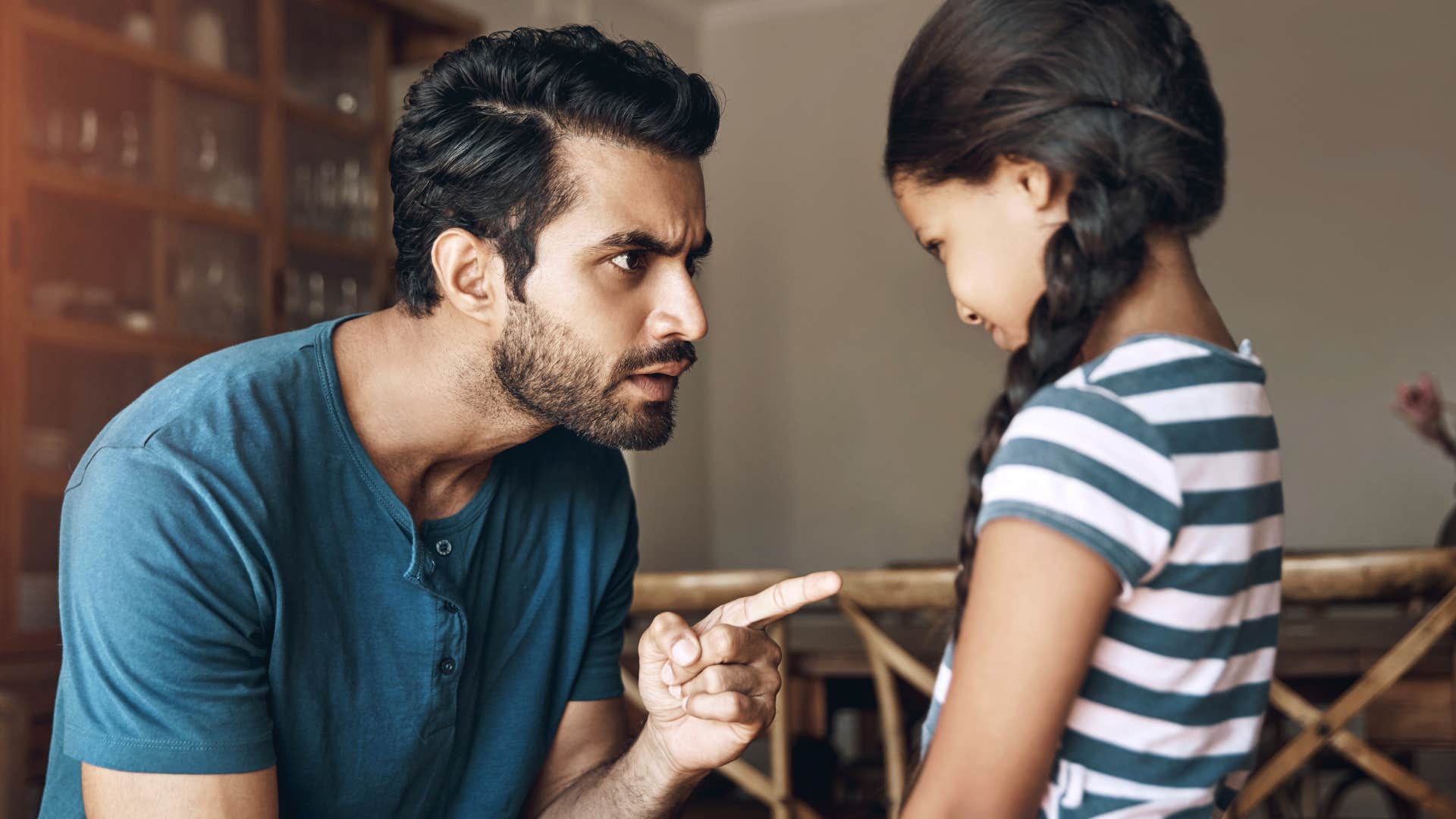 PeopleImages.com - Yuri A | Shutterstock.com
PeopleImages.com - Yuri A | Shutterstock.com
Taking accountability isn’t just important for the sake of forgiveness and gratitude. It’s essential for building healthy relationships and trust, according to a study published in the Journal of Positive Psychology. As a parent, this means owning up to your mistakes, having open conversations, and taking responsibility for your actions at home, and modeling integrity and honesty for your kids outside the home.
Adopting a victim mentality and pushing your kids to take the blame for your mistakes is one of the parenting habits that other people secretly judge. You’re the parent who’s supposed to teach your kids to be thoughtful, empathetic, and self-aware, so making your child bear the emotional burden of your mistakes isn’t just immature, it’s harmful.
Zayda Slabbekoorn is a staff writer with a bachelor’s degree in social relations & policy and gender studies who focuses on psychology, relationships, self-help, and human interest stories.

